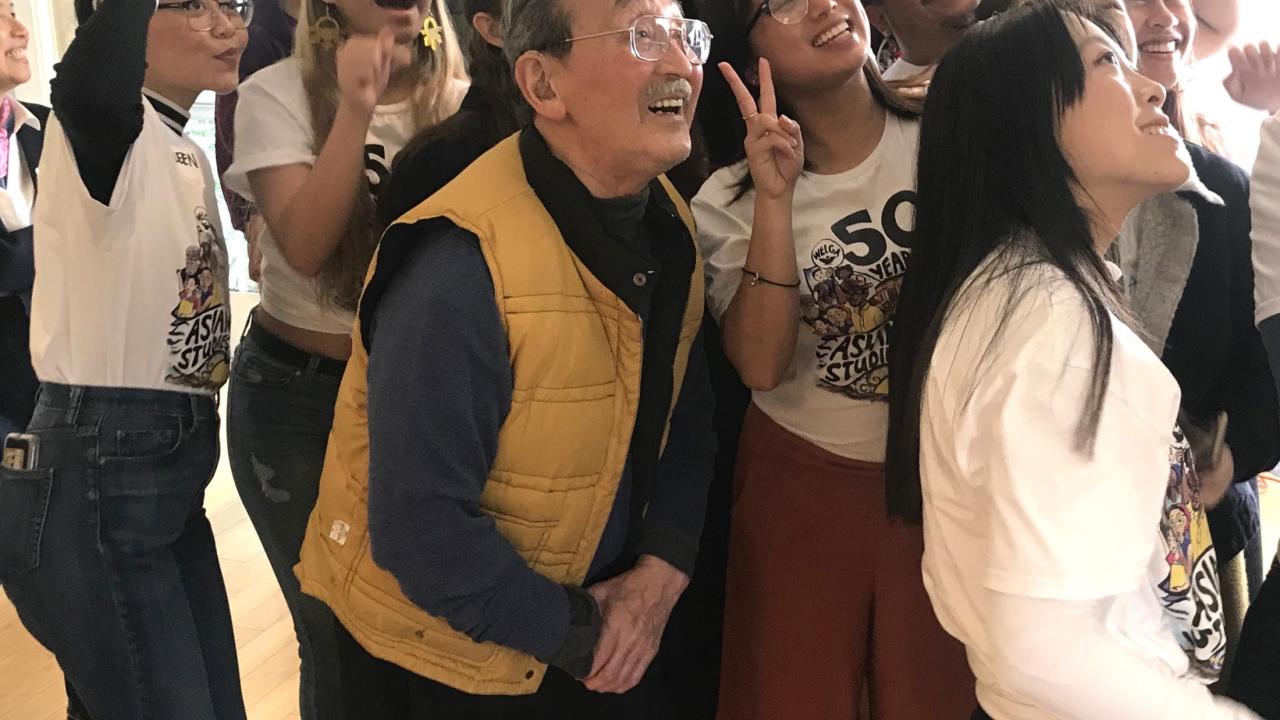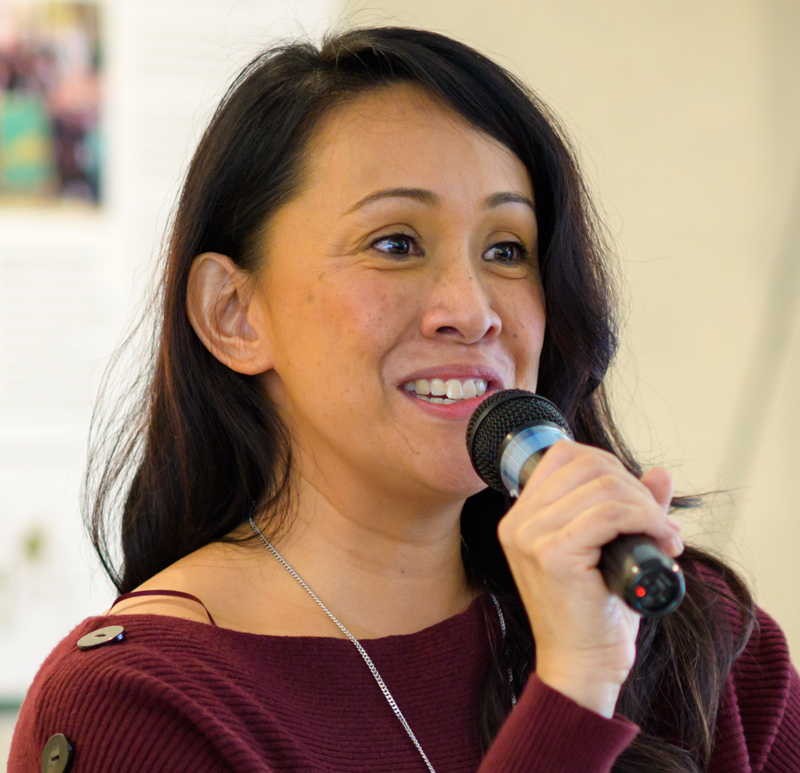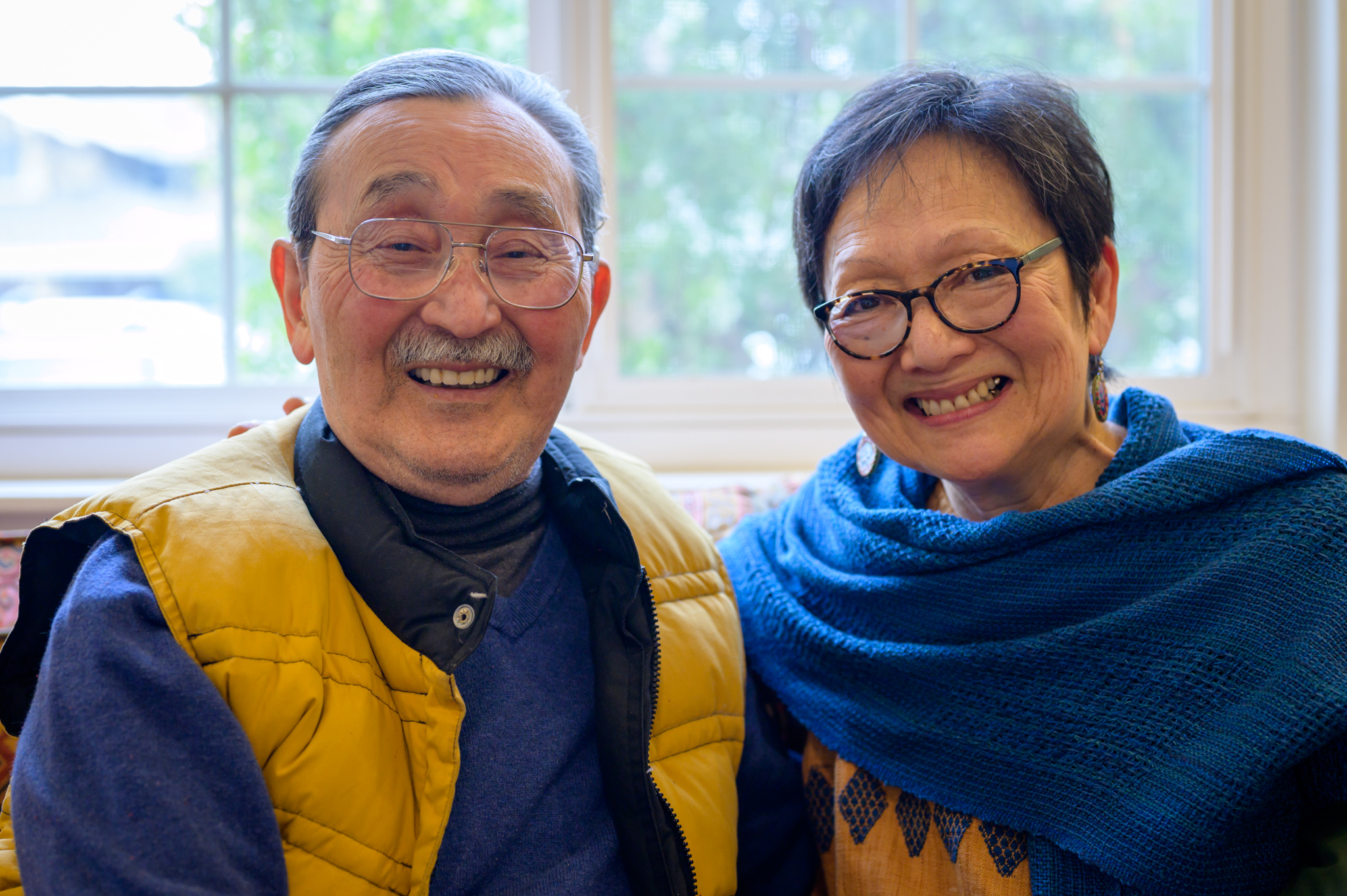
Isao Fujimoto’s Scholarship, Activism and Caring Leaves Deep Impression
During his four decades as a lecturer at UC Davis and nearly 60 years as a community organizer, Isao Fujimoto has touched thousands of lives. Each one seems to remember him, and he remembers each one. Former students, colleagues and friends from near and far celebrated the life and work of Fujimoto, 86, a founder of the UC Davis Asian American studies program, at a recent symposium.

“Isao Fujimoto stood up for social justice around the state and the world,” said Robyn Rodriguez, chair of the Department of Asian American Studies in the College of Letters and Science. Fujimoto’s work, Rodriguez said, is a model of “radical pedagogy — challenging the hierarchy between faculty and students and valuing intergenerational knowledge.”
The symposium was held at Davis’ International House, the community organization Fujimoto helped found and where he is the subject of the exhibit Isao Fujimoto: Life and Legacy, created by Scott Tsuchitani, a doctoral candidate in cultural studies. The Asian American studies program is celebrating its 50th anniversary, as are the African American and African, Chicana and Chicano, and Native American studies programs.
Family imprisoned during World War II
Fujimoto’s activism grew out of trying experiences while growing up as a person of Japanese descent in the United States. At the time, most Asians were not eligible for U.S. citizenship. His family lived and farmed on the Yakama Indian Reservation because Washington, and many other states, barred noncitizens from owning or leasing land. Reservations were considered federal land not subject to such laws.
The day after the December 1941 bombing of Pearl Harbor, Fujimoto’s father was arrested. The next year, the family’s mother and four children were imprisoned at Heart Mountain, Wyoming, and later at Tule Lake, California, internment camps. After World War II, they settled near Morgan Hill, California, and farmed. Fujimoto went on to earn degrees from UC Berkeley, Stanford University and Cornell University.
In 1967 Fujimoto joined the newly created applied behavior sciences department at UC Davis, was a founding faculty member in the community development program, and in 1969 helped launch the Asian American studies program.
“All of these had, I think, for me, certain common themes,” Fujimoto said in an interview. “I think the crux is community. What does community mean in our lives? Not only what does it mean, but what's my role in it? No matter where you are, you can make a contribution.”
After retiring from UC Davis in 1994, Fujimoto co-founded the Central Valley Partnership for Citizenship, which brought together 20 activist groups to support 150 emerging immigrant community organizations. He also continued to teach classes, including a study abroad program working with community organizations in Japan and another that made frequent field trips to the San Francisco Bay Area where his students met with activists and organizers.
Sharing stories about Fujimoto’s impact
Those attending the symposium spoke about how much Fujimoto cared for and helped them.

Fujimoto was a guiding light for students at UC Davis, especially those of diverse backgrounds that were not well represented on campus, said Ellen Bepp, whose art is part of the exhibition.
“We were very young Asian American students trying to find our voices,” said Bepp, an Oakland resident who left UC Davis after two years. She was a member of Asian American Concern, one of the student groups on campus formed in the 1960s calling for greater student and faculty diversity. “My friends and I became connected to the movement; without [Fujimoto], none of that would have happened.”
When American studies professor Julie Sze came to UC Davis in 2003, she got to know Fujimoto and admire his approach to communication, activism, teaching and research.
“I’d go to a meeting and he would tell a story,” she said. “It was a rare and beautiful thing; scholars and activists don’t often go into that mode, bringing love into the world with a focus on justice.”
A guiding influence on UC Davis and the state
Rodriguez, of the Asian American studies department, traces Fujimoto’s impact on her life long before she came to UC Davis or met him. As a high school student in Union City, Rodriguez took part in a program run by Filipino Advocates for Justice. That organization was directed by Lillian Galedo (B.S., child development, ’70), who attended UC Davis where Fujimoto was her mentor.
Daniel O’Connell (M.S., international agricultural development, ’02) is director of the Central Valley Partnership, a community organizing group named in honor of the organization Fujimoto helped start in the 1990s. Fujimoto’s life and work are a central component to O’Connell’s doctoral dissertation at Cornell, which he’s developing into a book.
“Isao launched a thousand ships and I’m one of them,” O’Connell said. “He taught us how to do our work with a smile and love. I wish I could channel him better.”
— Jeffrey Day, content strategist in the College of Letters and Science
